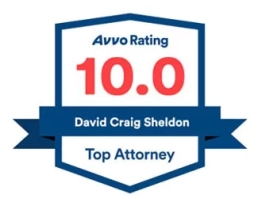OVI -DUI | Free Consultation: 866.330.6030
How to handle traffic stops
How to handle traffic stops
Do You Know Your Rights If You Get Pulled Over for a Traffic Offense in Northeast Ohio?
Do You Know Your Rights If You Get Pulled Over for a Traffic Offense in Northeast Ohio?
Know your rights!
When you are pulled over by the police, it is easy to feel intimidated and not know what to do. Whether you pay your ticket or fight it, every driver should know their rights. Remember to remain calm and respectful during any interaction with the police. If you feel that your rights have been violated, it’s important to contact an attorney as soon as possible.
- Right to remain silent: You have the right to remain silent and not answer any questions beyond providing your name, driver’s license, registration, and proof of insurance. Anything you say can be used against you in court, so it’s usually best to avoid making any statements that could incriminate you.
- Right to refuse a search: You have the right to refuse a search of your vehicle without a warrant. However, if the police have probable cause to believe that there is evidence of a crime in your car, they may be able to conduct a search without a warrant.
- Right to an attorney: If you are arrested or taken into custody, you have the right to an attorney. If you cannot afford an attorney, one will be appointed for you.
- Right to record the interaction: You have the right to record your interaction with the police as long as you do not interfere with their investigation.
- Right to appeal: If you receive a ticket or citation, you have the right to appeal the decision in court.
If you are stopped by the police and accused of a crime, it’s important to know what to do and what not to do to protect yourself and ensure that you are treated fairly. Here are some tips:
Here’s what to do if you are stopped by the police
- Pull over safely and quickly: When you see the police lights or hear the siren, pull over as soon as it is safe to do so. Signal your intention to pull over, slow down, and stop on the right-hand side of the road. Turn off the engine, stay in the car, and keep your hands on the steering wheel where the officer can see them. This will help to put the officer at ease and prevent any misunderstandings.
- Be polite and respectful: Greet the officer with a polite “good afternoon” or “good evening,” and listen carefully to their instructions. Avoid arguing, being defensive or confrontational, and answer their questions truthfully.
- Provide your documents: When asked, provide your driver’s license, registration, and proof of insurance. If the documents are in a different location than where you are sitting, let the officer know where they are and ask for permission to retrieve them.
- Stay silent: If you choose not to answer any questions remain silent. Anything you say can be used against you in court, so it’s usually best to avoid making any statements that could incriminate you. Don’t admit guilt or apologize.
- Ask for clarification if you don’t understand: If you don’t understand something the officer has said or asked you to do, politely ask them to clarify.
- Ask for an attorney: If the police start to question you about the alleged crime, it’s important to exercise your right to an attorney. You can say something like, “I want to speak with my attorney before answering any questions.”
Here’s what not to do if you are stopped by the police
- Do not offer any additional information: Only answer the police questions. It’s important not to make any incriminating statements or providing details about the alleged incident.
- Do not think you are smarter than the police: Trying to talk your way out of a traffic stop can backfire. The police are always looking for evidence to use against you.
- Do not consent to a search: Unless the police have a warrant or probable cause to conduct a search, you have the right to refuse a search of your person or property. You can say something like, “I do not consent to a search.”
- Do not give them evidence
- Do not destroy evidence
- Do not lie to the police: Lying to the police is a crime, and it could make your situation worse. It’s better to remain silent or ask for an attorney if you’re unsure what to say.
- Do not resist or obstruct the police: Resisting or obstructing the police could lead to additional charges, and it could put your safety at risk.
- Do not wait to speak to an attorney. Contact one as soon as possible for serious traffic stops such as an OVI. You have the right to decline to perform field sobriety tests. Exercise that right! (NOTE: Failure to perform field sobriety tests is NOT obstructing official police business no matter what the police officer says!)
For more information about an OVI traffic stop, go to our OVI FAQs page.


Know your rights!
When you are pulled over by the police, it is easy to feel intimidated and not know what to do. Whether you pay your ticket or fight it, every driver should know their rights. Remember to remain calm and respectful during any interaction with the police. If you feel that your rights have been violated, it’s important to contact an attorney as soon as possible.
- Right to remain silent: You have the right to remain silent and not answer any questions beyond providing your name, driver’s license, registration, and proof of insurance. Anything you say can be used against you in court, so it’s usually best to avoid making any statements that could incriminate you.
- Right to refuse a search: You have the right to refuse a search of your vehicle without a warrant. However, if the police have probable cause to believe that there is evidence of a crime in your car, they may be able to conduct a search without a warrant.
- Right to an attorney: If you are arrested or taken into custody, you have the right to an attorney. If you cannot afford an attorney, one will be appointed for you.
- Right to record the interaction: You have the right to record your interaction with the police as long as you do not interfere with their investigation.
- Right to appeal: If you receive a ticket or citation, you have the right to appeal the decision in court.
If you are stopped by the police and accused of a crime, it’s important to know what to do and what not to do to protect yourself and ensure that you are treated fairly. Here are some tips:
Here’s what to do if you are stopped by the police
- Pull over safely and quickly: When you see the police lights or hear the siren, pull over as soon as it is safe to do so. Signal your intention to pull over, slow down, and stop on the right-hand side of the road. Turn off the engine, stay in the car, and keep your hands visible. Once you have pulled over, turn off the engine, and keep your hands on the steering wheel where the officer can see them. This will help to put the officer at ease and prevent any misunderstandings.
- Be polite and respectful: Greet the officer with a polite “good afternoon” or “good evening,” and listen carefully to their instructions. Avoid arguing, being defensive or confrontational, and answer their questions truthfully.
- Provide your documents: When asked, provide your driver’s license, registration, and proof of insurance. If the documents are in a different location than where you are sitting, let the officer know where they are and ask for permission to retrieve them.
- Stay silent: If you choose not to answer any questions remain silent. Anything you say can be used against you in court, so it’s usually best to avoid making any statements that could incriminate you. Don’t admit guilt or apologize
- Ask for clarification if you don’t understand: If you don’t understand something the officer has said or asked you to do, politely ask them to clarify.
- Ask for an attorney: If the police start to question you about the alleged crime, it’s important to exercise your right to an attorney. You can say something like, “I want to speak with my attorney before answering any questions.”
Here’s what not to do if you are stopped by the police
- Do not offer any additional information: Only answer the police questions. It’s important not to make any incriminating statements or providing details about the alleged incident.
- Do not think you are smarter than the police: Trying to talk your way out of a traffic stop can backfire. The police are always looking for evidence to use against you.
- Do not consent to a search: Unless the police have a warrant or probable cause to conduct a search, you have the right to refuse a search of your person or property. You can say something like, “I do not consent to a search.”
- Do not give them evidence
- Do not destroy evidence
- Do not Lie to the police: Lying to the police is a crime, and it could make your situation worse. It’s better to remain silent or ask for an attorney if you’re unsure what to say.
- Do not Resist or obstruct the police: Resisting or obstructing the police could lead to additional charges, and it could put your safety at risk.
- Do not wait to speak to an attorney. Contact one as soon as possible for serious traffic stops such as an OVI. You have the right to decline to perform field sobriety tests. exercise that right.
For more information about an OVI traffic stop, go to our OVI FAQs page.


